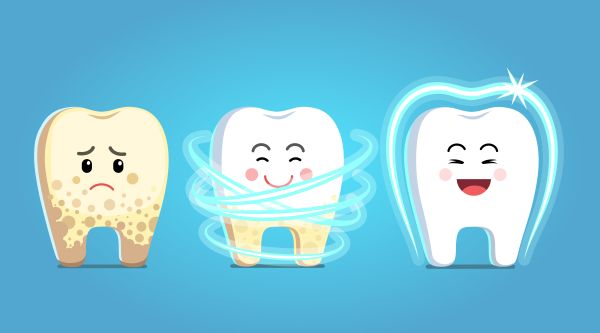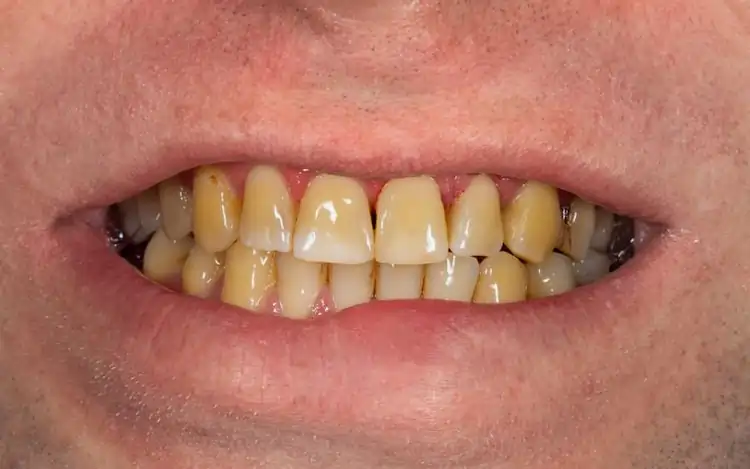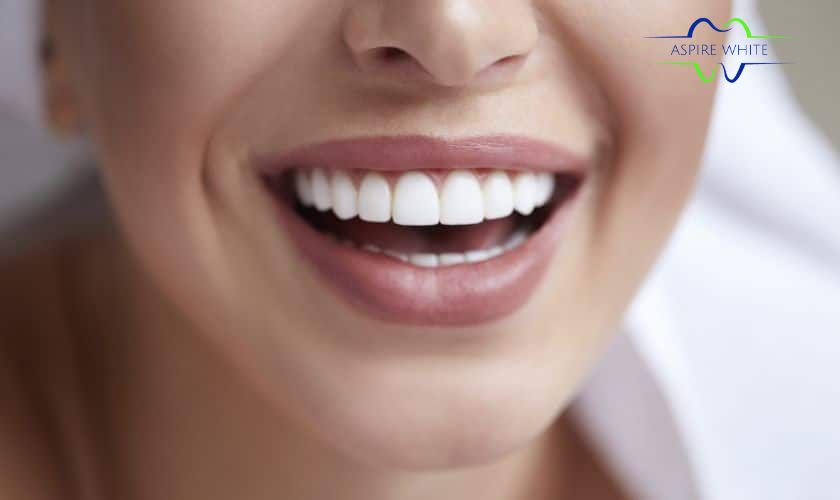This article provides an overview of teeth whitening for sensitive teeth, discussing the causes of tooth sensitivity, risks associated with traditional whitening methods, gentle teeth whitening options, natural remedies, selecting the right products, and the importance of professional advice and consultation for effective and safe teeth whitening.
Overview of Gentle Teeth Whitening for Sensitive Teeth Luton
The desire for a whiter smile is almost universal, yet for those with sensitive teeth, the journey towards achieving this can seem fraught with potential pitfalls. Traditional teeth whitening methods, often celebrated for their efficacy, can unfortunately pose significant challenges for individuals with sensitive teeth, leading to discomfort that can outweigh the cosmetic benefits.
This sensitivity can stem from a variety of dental conditions, including worn enamel and receding gums, which make the teeth more vulnerable to the harsh chemicals found in many whitening products. Consequently, there is a pressing need for gentle teeth whitening solutions that are specifically tailored to the needs of this demographic, ensuring both effectiveness in stain removal and a gentle approach that minimises discomfort.
Aspire White your local laser teeth whitening experts offering amazing treatment.
Recognising this need, this article is dedicated to exploring the realm of gentle teeth whitening for those with sensitive teeth. It aims to provide a comprehensive guide that not only highlights the challenges faced by individuals with dental sensitivity but also presents a range of solutions that have been proven to be both safe and effective.
By offering insights into the latest products and methods designed for sensitive teeth, including those endorsed by dental professionals, this article seeks to empower readers with sensitive teeth to pursue their goal of achieving a brighter smile with confidence and without fear of exacerbating their sensitivity.
Through careful selection of whitening methods and adherence to professional advice, it is entirely possible to attain the desired aesthetic outcomes while maintaining oral health and comfort.

Causes of Tooth Sensitivity Luton
Tooth sensitivity, a prevalent concern among individuals seeking gentle teeth whitening solutions, can stem from a variety of sources, each playing a significant role in determining the suitability of different whitening methods.
Enamel erosion stands out as a primary cause, often resulting from regular consumption of acidic foods and beverages. This erosion gradually wears away the protective outer layer of the teeth, exposing the dentin beneath, which contains microscopic tubules leading directly to the nerve of the tooth.
When this dentin is exposed to whitening treatments, it can lead to increased sensitivity and discomfort, highlighting the importance of choosing whitening treatments that consider this vulnerability.
Moreover, the condition of one’s gums can also significantly impact sensitivity levels. Receding gums, which may occur due to aggressive brushing or gum disease, expose the root surface of the teeth, another area rich in sensitive nerve endings.
This exposure not only increases the risk of tooth sensitivity to whitening treatments but also to thermal changes, such as hot or cold beverages. Additionally, underlying dental issues, such as cavities or cracked teeth, can further exacerbate sensitivity.
These problems create additional pathways for whitening agents to reach the sensitive inner parts of the tooth, thereby increasing discomfort. It is, therefore, imperative to address any existing dental health issues with a professional before embarking on a teeth whitening journey, to ensure the chosen method is both effective and comfortable.
Risks Associated with Traditional Gentle Teeth Whitening Methods Luton
For those with sensitive teeth, traditional gentle teeth whitening methods can pose several risks that may exacerbate their condition. The use of whitening agents with high concentrations of hydrogen peroxide or carbamide peroxide, which are commonly found in over-the-counter whitening kits, can result in considerable discomfort and even pain.
This is especially true for individuals whose sensitivity stems from worn enamel or exposed dentin layers. Products that do not take tooth sensitivity into account can inadvertently lead to increased sensitivity and gum irritation, making daily activities like eating and drinking uncomfortable.
Moreover, these traditional methods can cause damage to the tooth’s enamel with prolonged use. Enamel, once eroded, cannot be regenerated, which means that any damage done in the pursuit of a brighter smile can lead to long-term sensitivity issues and potentially more serious dental problems.
The allure of quick results often draws individuals to these high-strength products, but the risks they pose to those with sensitive teeth cannot be overstated. It’s not just the immediate effects of pain and discomfort that are concerning; the long-term implications on oral health can be significant.
Enamel erosion not only increases tooth sensitivity but can also make teeth more susceptible to cavities and decay. As such, it’s imperative for individuals with sensitive teeth to approach teeth whitening with caution, prioritising methods and products that are designed with their specific needs in mind.

Gentle Teeth Whitening Options Luton
Individuals with sensitive teeth often face a challenge in finding Gentle Teeth Whitening solutions that do not exacerbate their discomfort. In this regard, the selection of gentle whitening options becomes crucial. Among the myriad of choices, whitening toothpaste tailored for sensitive teeth stands out.
These toothpastes are specifically formulated with lower abrasiveness, effectively removing surface stains without wearing down the enamel. This ensures the integrity of the tooth enamel is preserved, mitigating the risk of further sensitivity while gradually enhancing the teeth’s appearance.
Products such as those containing potassium nitrate and fluoride are particularly beneficial, as they not only assist in whitening but also in alleviating tooth pain associated with sensitivity.
In addition to toothpastes, technological advancements have introduced LED mouthpieces as a gentle yet effective alternative for teeth whitening. Unlike traditional bleaching methods that may lead to increased sensitivity due to higher concentrations of whitening agents, LED mouthpieces utilise light technology to accelerate the whitening process without direct chemical aggression on the teeth.
This method reduces the risk of sensitivity , making it a viable option for those with delicate dental conditions. Furthermore, for a more tailored approach, products like the Opalescence Go 15% Mint Teeth Whitening Tray have been designed with sensitivity in mind. Tooth sensitivity can limit whitening options, but there are best teeth whiteners for sensitive teeth available over the counter.
Such options exemplify the advancements in dental care that cater to the needs of individuals with sensitive teeth, enabling them to achieve a brighter smile without the fear of pain.
Natural Remedies for Gentle Teeth Whitening for Sensitive Teeth Luton
Exploring natural remedies for gentle teeth whitening can be particularly beneficial for individuals with sensitive teeth, offering effective solutions without the harsh effects of chemical treatments. One popular method involves a simple mixture of strawberry and baking soda.
The malic acid found in strawberries acts as a natural whitener, helping to remove surface stains on the teeth, while baking soda gently polishes and cleans the teeth without exacerbating sensitivity issues. This combination not only provides a mild whitening effect but does so in a way that respects the delicate nature of sensitive teeth.
Another gentle yet effective approach is the use of activated charcoal. This substance is renowned for its ability to absorb toxins and stains from the surface of the teeth, making it an excellent choice for those looking to brighten their smile without resorting to harsh chemical agents.
Moreover, oil pulling, an ancient practice involving swishing sesame oil around in the mouth, has been shown to help remove plaque and surface stains. This technique not only contributes to whiter teeth but also supports overall oral health by reducing bacteria and promoting gum health.
Both activated charcoal and oil pulling stand out as gentle, natural methods for achieving a brighter smile without putting sensitive teeth at risk.

Selecting the Right Products Luton
Selecting the right teeth whitening products is a crucial step for individuals with sensitive teeth to ensure they achieve the desired brightness without exacerbating their sensitivity. Products containing potassium nitrate and fluoride have been specifically highlighted for their ability to mitigate discomfort during the whitening process.
Potassium nitrate works by calming the nerves in the teeth, while fluoride helps in remineralising the enamel, thus providing a shield against the harsh effects of whitening agents. This combination not only alleviates pain but also contributes to the overall health of the teeth during the whitening journey.
Moreover, scrutinising the active ingredients and their concentrations in whitening products is essential. For instance, lower concentrations of hydrogen peroxide or carbamide peroxide are preferable for sensitive teeth as they are less likely to cause irritation. Products like the Opalescence Go 15% Mint Teeth Whitening Tray are specifically designed with sensitive individuals in mind, offering effective whitening with minimal sensitivity due to their carefully controlled ingredient content.
Consulting with a dental professional can provide additional personalised guidance. A dentist can recommend products that complement your oral health status and sensitivity level, ensuring you select a whitening solution that is both safe and effective. This bespoke approach not only optimises the whitening outcome but also preserves the integrity of your dental health.
Professional Advice and Consultation Luton
Professional advice and consultation play a pivotal role in the journey towards achieving a brighter smile, especially for those grappling with the challenge of sensitive teeth. Dental professionals are equipped with the expertise to assess individual cases of sensitivity and propose customized whitening treatments that align with the patient’s unique needs.
For instance, in cases of severe sensitivity or when traditional whitening methods are not suitable, dentists might recommend alternative procedures such as dental bonding or veneers. These alternatives not only circumvent the issue of sensitivity but also offer a durable solution to discoloration, providing patients with a long-lasting and radiant smile without the discomfort typically associated with whitening treatments.
Furthermore, dentists can guide patients towards at-home whitening options that are specifically designed for sensitive teeth, featuring lower concentrations of peroxide. This careful selection helps mitigate the risk of exacerbating sensitivity, allowing for a gentle yet effective path to achieving whiter teeth.
Regular dental check-ups become an indispensable part of this process, as they allow the dentist to monitor the progress of the whitening treatment, adjust protocols as necessary, and provide ongoing support to manage sensitivity. These check-ups serve as a cornerstone for maintaining oral health, ensuring that patients can enjoy the benefits of a brighter smile without compromising their comfort or well-being.

Conclusion on Effective gentle Teeth Whitening for Sensitive Teeth Luton
Embarking on a gentle teeth whitening journey when you have sensitive teeth requires a careful and informed approach to avoid exacerbating sensitivity issues. The good news is, with advancements in dental care and products specifically designed for sensitive teeth, achieving a whiter smile without discomfort is more accessible than ever.
Products such as Opalescence Go 15% Mint Teeth Whitening Tray demonstrate how innovations in gentle teeth whitening have evolved to cater to those with sensitivity concerns, offering effective results with minimal risk of pain or discomfort. These options underscore the importance of choosing treatments that are not only effective but also gentle on the teeth.
Moreover, the role of dental professionals in guiding individuals through the gentle teeth whitening process cannot be overstated. Their expertise is invaluable in identifying the underlying causes of tooth sensitivity, recommending suitable whitening products, and providing customized treatments like dental bonding or veneers for those with severe sensitivity.
Regular consultations with a dentist ensure that the chosen whitening method aligns with one’s oral health status and sensitivity level, allowing for adjustments as needed to achieve the best possible outcomes. Therefore, by prioritizing gentle whitening options and leveraging professional advice, individuals with sensitive teeth can enjoy the benefits of a brighter smile without compromising their comfort or oral health.



